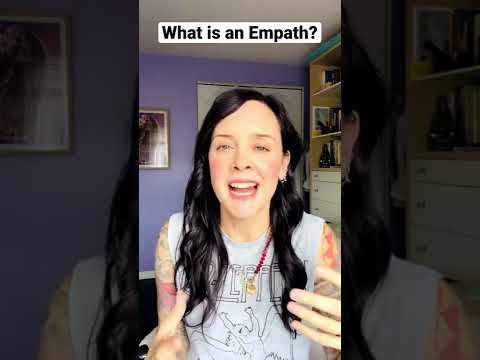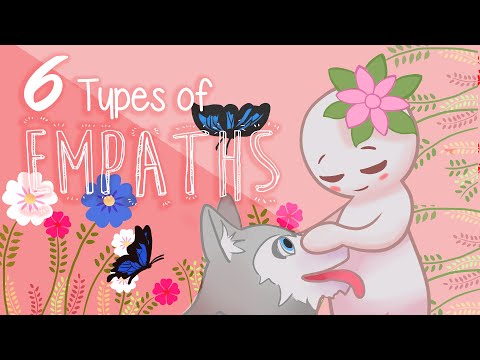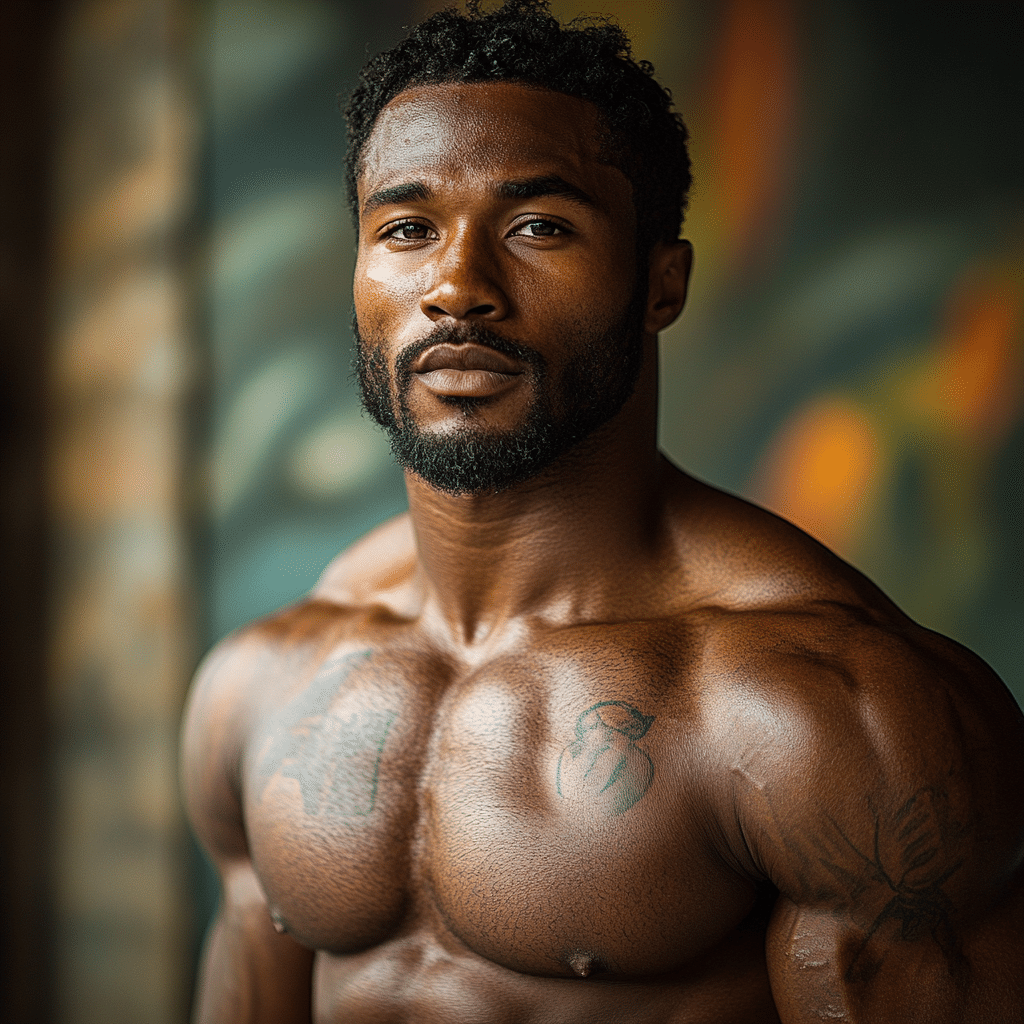
Understanding the Empath Definition
Let’s dive right in! The empath definition is all about heightened sensitivity. An empath is someone who can feel and perceive the emotions and energies of others more acutely than most people. This sixth sense gives them the ability to connect deeply with the feelings of those around them. Imagine walking into a room and immediately feeling a wave of joy or sadness—empaths experience this on a daily basis.
This unique sensitivity can be a double-edged sword. On one hand, it allows for a profound connection with others—like that feeling you get when you nail a workout with your crew, feeling every rep together. On the other hand, it can lead to overwhelming emotional experiences. Have you ever felt drained after listening to a friend’s problems? That’s the empath in action!
Empaths often find themselves deeply affected by others’ emotions, whether they’re happy, sad, or anxious. This can be particularly intense in settings where many emotions are present, leading to what some call “emotional hangovers.” So, is it a gift or a burden? The answer isn’t always clear-cut.

Top 7 Signs You Might Be an Empath
If you suspect you might be an empath, check out these top signs:
Ever find crowds too much to handle? Empaths experience intense emotions, just like how celebrities such as Oprah Winfrey have described feeling the weight of collective emotions in public spaces.
Empaths thrive in calming environments—think Muji, a brand that creates soothing atmospheres, perfectly tailored for your relaxation needs. Chaotic places? Forget it! They’ll often feel completely drained.
If you find yourself drawn to helping professions, you might have that empathic touch. Take Brené Brown, for example. She digs deep into emotional wounds, using her empathic skills to connect with others on a meaningful level.
Empaths can often sense what others are feeling, even without words. Just think of politicians like Abraham Lincoln, who made compassionate decisions based on the emotional climate of the day.
Empaths usually prefer harmony over conflict. Consider the Dalai Lama, who navigates the world with compassion. Empaths often share that desire for peace in their personal lives.
Many empaths express their feelings through art, like Vincent van Gogh, who transformed his emotional experience into masterpieces that still resonate today. There’s something powerful about creating from that deep well of emotional experience!
Setting emotional boundaries can be tough for empaths. Even Ellen DeGeneres has talked about her own journey of figuring out how to shield her emotional well-being while remaining open and compassionate.

The Mung Definition: A Broader Perspective
Now, let’s switch gears and explore another important concept: the mung definition. Mung refers to clutter—emotional, mental, and physical. When empaths absorb the emotional “mung” from others, they risk burnout and feeling overwhelmed. Think about it: ever feel mentally stuffed after a heavy workout week? That’s similar!
Managing this emotional clutter is vital for empaths to maintain their well-being. It’s crucial to clear out any emotional baggage to keep that energy flowing—just like how a good workout ensures you’re not weighed down during your next session. Setting boundaries helps empaths prevent emotional overcrowding and keep their mental space clean.
By understanding both the empath and mung definitions, we get a fuller picture of the emotional sensibilities that shape the experience of being an empath. This awareness can help empaths cultivate healthier emotional environments for themselves.

Gifts of Being an Empath
Let’s celebrate the gifts of being an empath! This heightened sensitivity can lead to building incredible connections. Imagine how relationships flourish when empathy is at the core! Canadian singer-songwriter Alanis Morissette uses her empath energy in her songwriting, creating music that resonates deeply with fans.
Empaths also possess high emotional intelligence. This skill is incredibly useful for conflict resolution, as empathic leaders—think the late Steve Jobs—can encourage innovation in a team by considering their emotional needs. Building a supportive atmosphere is key to success in both life and fitness.
And let’s not forget the immense capacity for compassion that empaths have. When they channel their emotions productively, they foster healing not just for themselves, but for others as well. This connection elevates everyone involved.

The Burden of Being an Empath
But it’s not all sunshine and rainbows. With these gifts come serious burdens. Empaths can face emotional exhaustion and anxiety by absorbing others’ grief and stress. Judith Orloff, a notable psychologist, warns that neglecting self-care can lead to burnout and isolation. It’s like hitting the gym hard without allowing your body to recover—you’ll end up running on empty.
Empaths often feel out of step with society’s expectations, where toughness and stoicism are prized over sensitivity. This can create a sense of alienation—a struggle many empaths know all too well. Finding their place in a world that often dismisses emotional expression can heighten this feeling, leading to unnecessary emotional strain.
There’s also the challenge of maintaining healthy boundaries. Without them, empaths risk letting the burdens of others overwhelm their own emotional well-being. They may need to remind themselves to recharge and focus inwardly, just like professional athletes prioritize recovery in their training regimens.
Navigating the Empath Experience
To flourish as an empath, striking a balance is vital. You can harness your empathetic abilities while protecting your emotional health with mindfulness practices, meditation, and grounding techniques. Even Arnold Schwarzenegger swears by visualization techniques to harness focus—empaths can benefit just as much from these strategies!
Finding supportive communities—whether they’re online or in-person—can also help empaths feel validated in their experiences. Sharing insights and connecting with others creates a safe space for understanding, just like a tight-knit gym crew motivates you to push yourself further.
Learning to embrace your empathic nature doesn’t mean you have to lose yourself. Rather, it’s about rewriting the narrative on sensitivity, showcasing it as an asset.
Embracing Both Sides of Empathy
The dualities of being an empath invite deeper exploration of human emotions. Recognizing these complexities encourages a fresh perspective on sensitivity. Instead of viewing it as a weakness, how about seeing it as a foundation for compassion and understanding in a disconnected world?
By embracing both the gifts and burdens of empathy, individuals can spark personal growth while contributing positively to their communities. Just think about that ripple effect—empowering understanding and kindness that lifts everyone up.
So whether you’re getting shredded at the gym or lifting the spirits of those around you, remember: embracing empathy can enhance not only your life but the lives of others, creating a world where strength, compassion, and connection thrive.
Empath Definition: Is It a Gift or a Burden?
Understanding the Empath Definition
So, what is an empath? Simply put, an empath is someone who deeply feels the emotions of others, often experiencing them as if they were their own. This isn’t just a casual buzzword; it’s a skill that can transform how individuals connect with each other. Interestingly, being an empath may feel a bit like a double-edged sword. You could think of it as being similar to the concept of torsion, where one’s emotional state can twist and turn, impacting overall well-being. Whether seen as a gift or a burden, many empathic individuals find themselves in a dance of emotions, ebbing and flowing with the sentiments surrounding them.
Trivia Time: Fun Facts About Empaths
Did you know that some believe empaths can also sense physical ailments in others? This fascinating idea relates to the induration process, where individuals might intuitively discern a person’s discomfort. Notably, actress Giselle eisenberg, known for her roles in family-friendly shows, often portrays characters that tap into deep emotional connections, further shining a light on how empathy plays a vital role in storytelling. However, being empathetic isn’t limited to just feeling; it can also mean helping others. Think about surrogate relationships that arise when empaths support those who are struggling, acting almost like a second nature in their relationships.
The Liminal Space of Empathy
Empathy exists in a liminal space—a threshold that can feel both enlightening and confining. On one hand, being an empath can enhance social experiences, making interactions rich and meaningful. But on the flip side, it can lead to overwhelming situations. You might relate this to the struggle with limited personal space, much like packing a Kids suitcase for a trip; it’s about choosing which emotions to take with you and which to leave behind. In that sense, the empath definition highlights an intricate balance between absorbing others’ feelings while shielded enough to remain centered.
Navigating life as an empath isn’t always straightforward, and there are famous figures who stand out in various fields. Take Branscombe Richmond, known for his dynamic presence in film and television, who often brings emotional truth to his characters. This aspect of acting parallels the daily life of many empaths—absorbing stories and feelings to connect on a human level. Ultimately, whether an empath sees their traits as burdens or gifts may come down to their coping strategies and emotional fortitude, which can be enriched through shared experiences and personal growth.



























